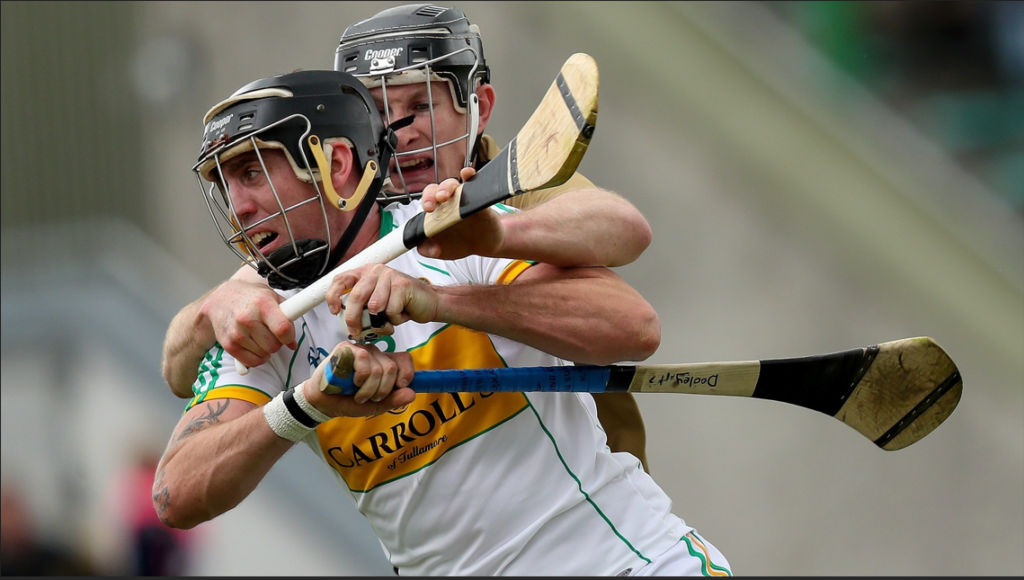The Christy Ring Cup is a yearly hurling match organized by the Gaelic Athletic Affiliation. The Christy Ring Cup, introduced in 2005, is an essential tournament that transformed the All-Ireland B Hurling Title, which was held between 1974 and 2004. Between 2005 and 2017 the Christy Ring Cup was the 2nd rank hurling championship.
With the initiation of the Joe McDonagh Cup, the Christy Ring Cup is the highest tier of the championship system without entry to that year’s All-Ireland finals series.
The top 2 teams in the Joe Mc Donagh Cup usually progress to the All-Ireland Senior Hurling Championship quarter-finals.

History
In 2003, there was a significant development in the hurling championship when the Hurling Development Committee (HDC) took charge of rearranging the tournament. The HDC was formed with the representation of the chairman of different teams, and their efforts led to a positive impact on the championship.
Pat Dunny (Kildare)
Liam Griffin (Wexford)
P. J. O’Grady (Limerick)
Ger Loughnane (Clare)
Cyril Farrell (Galway)
Jimmy O’Reilly (Down)
Willie Ring (Cork)
Pat Daly (GAA Games Development Officer)
Nicky English (Tipperary)
Over 3 months they maintained discussions with managers, players, and officials, while also taking a presentation from the Gaelic Players Association. The basic principle of the proposals was to structure the hurling championship into 3 ranks by 2004 National Hurling League status.
They restricted the top rank to 12 teams, while the next 10 teams would compete in the 2 ranks, which they would call the Christy Ring Cup.
There would also be promotion-relegation play-offs between the 3 championship ranks. The HDC strongly recommends playing these games as curtain raisers to the All-Ireland quarter-finals and semi-finals.
Format
In 2017, the majority of the agents decided to take action and rebuild the championship. As a result, a new arrangement was introduced, which included the introduction of the round-robin format in the title and the creation of the Joe McDonagh Cup, thus making the Christy Ring Cup one of the three levels in the championship.
Group stage
Exactly six teams are participating in the Cup. Throughout a season (from May to June) each group plays the others once (a round-robin system) for a sum of five games. Groups get 2 points for a success and one point for a draw.
No points are given for a loss.
Teams are ranked by total points.
The top 2 teams in the group competition are the Christy Ring Cup final. The groups placed at 3rd, 4th, and 5th positions are out of the running for the championship title. Additionally, the team placed sixth will be relegated to the Nicky Rackard Cup.
Tie-breakers
Rest assured that if teams finish with equal points, we will resolve the tie using the following criteria, in the specified sequence.
Where 2 teams only are involved – the outcome of the meeting of the 2 teams.“Score difference” is subtracting the “total Scores” from the total of “Scores For”
Highest Total “Score For”
Highest Total “Goals For”
A Play-Off
Knockout stage
The top 2 teams in the group stage contest the final. Officials declare the winning team as the champions officially.
The Christy Ring Cup stands as the most prestigious tournament in hurling that doesn’t offer direct access to the current year’s All-Ireland Senior Hurling Championship. For this, we need to encourage the counties to reach at least the McDonagh Cup (second League).
Promotion
Promoting the Christy Ring Cup involves various activities to increase awareness, engagement, and support for the competition. This might include:
- Crafting compelling marketing and advertising strategies that resonate with the target audience across multiple media platforms, to effectively promote the competition.
- At our company, we specialize in creating engaging and impactful promotional events that leave a lasting impression.
- We confidently collaborate with our sponsors to amplify the visibility and provide unwavering support for the cup.
- Leveraging social media platforms to effectively engage with fans, proactively share updates, and consistently generate buzz and excitement.
Moreover, as concerned with winning position the winning team at the end of the tournament will advance to the following season’s Joe McDonald Cup.
Relegation
Next year, the team at the bottom of the Christie circle will face elimination from the fourth Nicky Lackard Cup, and the winner of that year’s Nicky Lackard Cup will replace them.
Trophy and medals
At the end of the cup, the winning team receives a prize. They keep the Christy Ring Cup until the final of the next year. At the special platform in the Ard Chomairle section of the Hogan Stand, GAA and political leaders as well as special guests are to view the match and witness the presentation. Ribbons in the colors of the winning team beautifully decorate the cup.
The organizers attach both teams’ sets of strips to the cup during the game. The organizers then remove the strips belonging to the runners-up before the showcase. The winning team’s captain receives the cup on behalf of his team and gives a short speech. After that, every single member of the winning team has the opportunity to come to the platform and lift the cup.
The cup is named after Christy Ring. He was an eight-time All-Ireland decoration winner with Stopper whose bury region vocation traversed a long time from 1939 to 1963. Ring, generally considered one of the greatest hurlers in the history of the game, passed away in 1979. Fans and reporters rated him as the greatest player ever.
Conclusion
The Christy Ring Cup, an emblematic event within the Gaelic Athletic Association (GAA), epitomizes the essence of hurling’s spirit, fostering both development and passion within Ireland’s sporting landscape. As teams from second-tier hurling counties compete fervently, the tournament not only nurtures player skills but also serves as a beacon for hurling enthusiasts nationwide.
Beyond the sport’s traditional strongholds, the Christy Ring Cup ignites a flame of interest, spreading the zeal of hurling to regions where its roots may not run as deep. This promotion bolsters the sport’s growth and ensures its enduring presence across the Emerald Isle.
Moreover, the cup offers a stage where talent flourishes and ambition thrives. Each match presents an opportunity for players to hone their skills. Which showcase their abilities, and create unforgettable moments on the field. Their unwavering commitment unites communities and instills a sense of pride that transcends boundaries.
As the tournament reaches its conclusion, one team emerges triumphant, crowned with the Christy Ring Cup. Yet, beyond the accolades lies a deeper significance—a celebration of the sport’s heritage, a testament to its resilience, and a promise of its enduring legacy.
In this culmination, the Christy Ring Cup epitomizes more than mere competition; it symbolizes the unwavering spirit of hurling, inspiring generations and etching its mark on the hearts of players and fans alike. With each passing year, the cup’s conclusion heralds not just an end but a continuation—a reaffirmation of hurling’s place in the fabric of Irish culture and identity.
